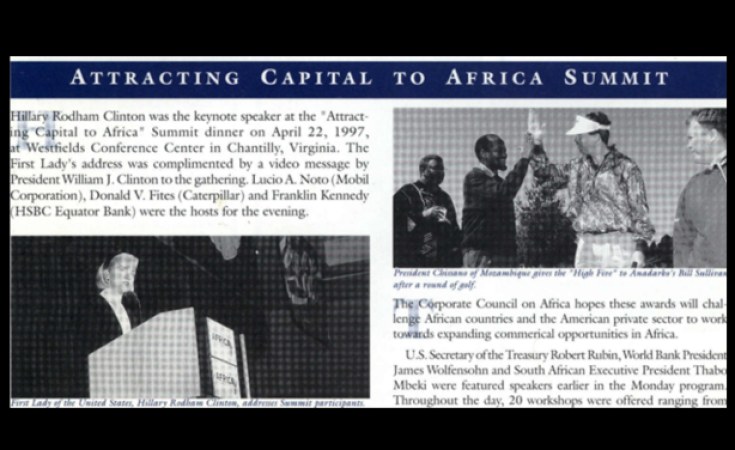Houston — The 200-member Corporate Council on Africa honored five countries this week with the 1999 Global Marketplace Awards for "continued efforts to open their economies to the world market."
The awards were presented during the biannual "Attracting Capital to Africa" conference here which attracted more than 800 participants from American corporations and Wall Street firms, along with African leaders, senior officials from the Clinton administration, and several ranking members of the U.S. Congress.
The recipients this year were Botswana, Egypt, Ghana, Mauritius and Namibia. Presidents Festus G. Mogae of Botswana, Jerry Rawlings of Ghana and Sam Nujoma of Namibia participated in the Houston gathering, along with Prime Minister Navinchandra Ramgoolam of Mauritius. Egypt was represented by its ambassador in Washington.
Three of the recipient nations have populations numbering less than two million and economies that generally are seen as well-managed. Botswana, with 1.5 million people, has a per capita Gross Domestic Product of $3300, sufficient foreign exchange reserves to cover more than two years of imports and little debt. Driven by diamonds and augmented by beef production, growth has been averaging over seven per cent a year.
Namibia, Botswana's southern African neighbor -- they both border South Africa on the west - is also well-endowed with natural resources. The country, which gained independence from South Africa in 1990, has 1.7 million people, with an average income of $2100 and a modern infrastructure.
"Great investment opportunities exist in our country," Nujoma said in an address. "Namibia is working hard to position itself as a truly strategic gateway into and from the southern African market."
Mauritius, a tiny island about the same size as the Houston metropolitan area, has just over a million people with an average income of $3,800 and a growth rate of six per cent a year.
"We have no diamonds, no gold, no oil, no rare minerals," Ramgoolam told the conference. "Our people are our only resource." Strategically positioned in the Indian Ocean between Africa and south Asia, Mauritius has emerged as the largest apparel manufacturer in Africa and as a center for offshore financial services.
Ghana and Egypt are countries with many more inhabitants and more problem-plagued economic histories. Rawlings launched Ghana on the path of economic reform in the mid-1980s, with wide-ranging privatisations of state-owned firms and a structural adjustment program guided by the International Monetary Fund. These efforts, along with the lifting of restrictions on foreign capital, have attracted a number of outside firms and raised average annual income for the country's population of 17.5 million to $390. Gold and diamonds are the economy's mainstays, along with timber, chemicals and oil refining.
Egypt, too, has managed a major economic turnaround, sparked by a reform program that has been popular with investors, if not always with domestic constituencies. The sell-off of state-owned factories, utilities and other companies has attracted significant new capital and helped pushed average annual income to $1200 for its rapidly growing population of 57 million. The oil industry accounts for about a tenth of Egypt's Gross Domestic Product, supplemented by chemicals, mining, manufacturing and tourism.
In 1997, the first year for the Council country honors, the awards went to Cote d'Ivoire, Ethiopia, Mozambique, South Africa and Uganda. One notable absence from this year's conference was South Africa, the continent's economic powerhouse, which is in the midst of an election campaign and did not send a ministerial-level delegation to Houston.


